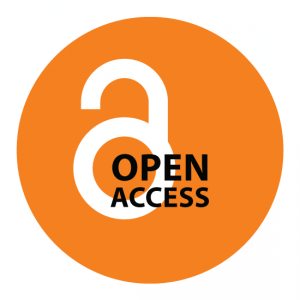By: Shane Sutton, Dean of University Libraries at the University of Arizona
 It’s been a busy summer for open access (OA) in Europe. On one hand, nationally coordinated efforts in places like Finland and Germany have sought (unsuccessfully so far) to pressure Elsevier into better subscription pricing and OA options. On the other hand, a group of early career researchers (ECRs) at the University of Cambridge are looking to mobilize fellow ECRs to embrace open models that are not controlled by commercial entities. In my view, these divergent approaches illustrate why we should focus our collective energies away from strategies in which commercial interests retain control under new economic conditions (see also, proposals to flip subscription payments to APCs), and towards working with ECRs and others who envision a return of scholarly dissemination responsibility to the academy.
It’s been a busy summer for open access (OA) in Europe. On one hand, nationally coordinated efforts in places like Finland and Germany have sought (unsuccessfully so far) to pressure Elsevier into better subscription pricing and OA options. On the other hand, a group of early career researchers (ECRs) at the University of Cambridge are looking to mobilize fellow ECRs to embrace open models that are not controlled by commercial entities. In my view, these divergent approaches illustrate why we should focus our collective energies away from strategies in which commercial interests retain control under new economic conditions (see also, proposals to flip subscription payments to APCs), and towards working with ECRs and others who envision a return of scholarly dissemination responsibility to the academy.
One aspect of the Finnish No Deal, No Review boycott that seems especially telling is that signees refuse to serve as reviewers or editors for Elsevier journals, but make no such commitment in terms of ceasing to submit articles to those same journals for publication. That is probably a bridge too far for many who feel compelled to meet traditional promotion and tenure expectations of publishing in prestigious journals that are often controlled by publishers such as Elsevier. While the Finnish position is admirable in a general sense, even if the demands for better economic terms are met, Elsevier would remain a profit-driven conduit through which dissemination occurs, though with slightly less robust profit margins.
Conversely, the ECRs involved with the Bullied into Bad Science statement urge their colleagues to “Positively value a commitment to open research and publishing practices that keep profits inside academia when considering candidates for positions and promotions (in alignment with DORA).” (Bold added.) In a related article, Corina J. Logan describes this is as the “ethical route to publication,” which she contrasts with the “exploitive route to publication” that typically involves subscription, OA, or hybrid journals from commercial publishers who extract from the academy the funds, labor, and content required to maintain a journal. Of course, a root problem is so many scholars willingly give up their intellectual property and labor in support of commercial publishers who are logically driven to maximize profits via funding from the academy through either subscriptions or APCs.
It’s encouraging to see some ECRs challenge these publishing models, even while they must navigate promotion and tenure criteria that may temper their OA practices. My interactions with junior faculty repeatedly reveal that many naturally gravitate to open models, an observation that is confirmed by ECR initiatives such as Bullied into Bad Science and OpenCon. I suspect the “ethical” vs. “exploitive” dichotomy presented by Logan will find increasing traction among ECRs. I hope it will also galvanize their support for OA models that are owned and managed by the academy to dislodge commercial control of scholarly dissemination. Proactive outreach to ECRs through local means like new faculty orientations and graduate student/post doc organizations, as well as through ECR-focused OA initiatives, should be an important element of shaping an OA future in which they will thrive. This includes soliciting ECR input and buy-in while designing OA publishing platforms to fully enable their interest in “ethical” options.
This article was published on In the Open. Read the full article.


